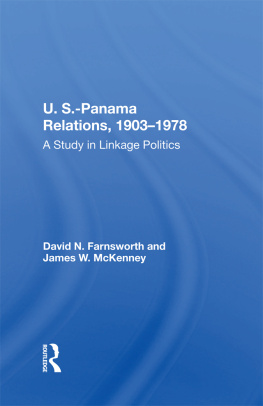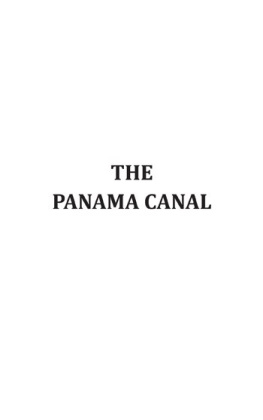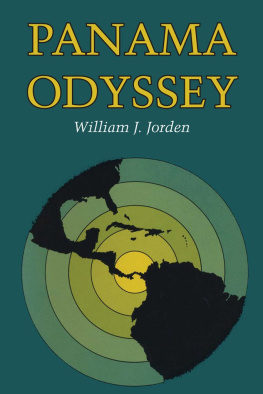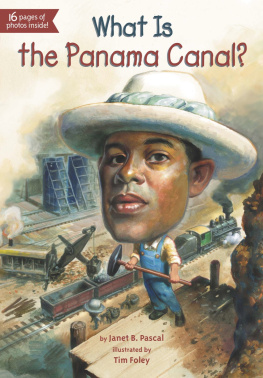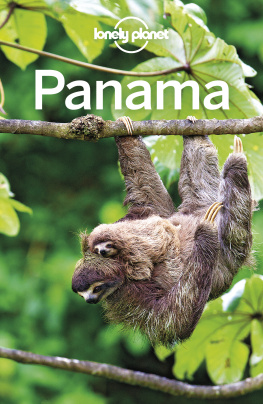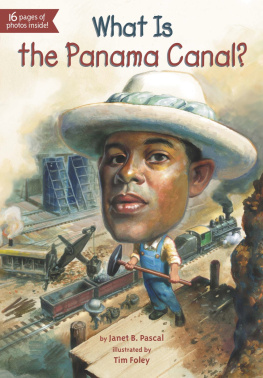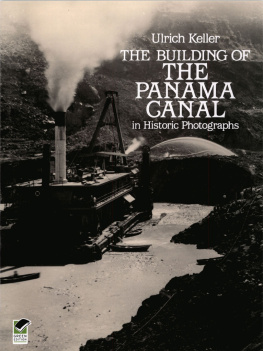U.S.-Panama Relations, 1903-1978
Westview Replica Editions
The concept of Westview Replica Editions is a response to the continuing crisis in academic and informational publishing. Library budgets for books have been severely curtailed. Ever larger portions of general library budgets are being diverted from the purchase of books and used for data banks, computers, micromedia, and other methods of information retrieval. Interlibrary loan structures further reduce the edition sizes required to satisfy the needs of the scholarly community. Economic pressures on the university presses and the few private scholarly publishing companies have severely limited the capacity of the industry to properly serve the academic and research communities. As a result, many manuscripts dealing with important subjects, often representing the highest level of scholarship, are no longer economically viable publishing projects--or, if accepted for publication, are typically subject to lead times ranging from one to three years.
Westview Replica Editions are our practical solution to the problem. We accept a manuscript in camera-ready form, typed according to our specifications, and move it immediately into the production process. As always, the selection criteria include the importance of the subject, the work's contribution to scholarship, and its insight, originality of thought, and excellence of exposition. The responsibility for editing and proofreading lies with the author or sponsoring institution. We prepare chapter headings and display pages, file for copyright, and obtain Library of Congress Cataloging in Publication Data. A detailed manual contains simple instructions for preparing the final typescript, and our editorial staff is always available to answer questions.
The end result is a book printed on acid-free paper and bound in sturdy library-quality soft covers. We manufacture these books ourselves using equipment that does not require a lengthy make-ready process and that allows us to publish first editions of 300 to 600 copies and to reprint even smaller quantities as needed. Thus, we can produce Replica Editions quickly and can keep even very specialized books in print as long as there is a demand for them.
About the Book and Authors
U.S.-Panama Relations, 1903-1978: A Study in Linkage Politics
David N. Farnsworth and James W. McKenney
This book traces relations between the United States and Panama from 1903 to 1978, focusing especially on the Panama Canal dispute from its origin until ratification of the historic Carter-Torrijos treaties. The authors' analysis emphasizes the extent to which the domestic politics of each country influence decisions about foreign policy and about the canal treaty negotiations, and how these decisions in turn affected internal political circumstances. Beyond its overall assessment of issues historically important in relations between the United States and Panama, the book covers a wide range of topics: Panama's political system, its domestic politics, and the importance of the canal; the hostile yet interdependent relationship between canal-zone residents and other Panamanians; details of the Panama-U.S. canal dispute, the lengthy negotiating process, and the negotiating strategies of each country; the treaty-ratification process in the U.S. Senate; and the likely impact of the treaty on future U.S.-Panama relations. The book is based on interviews with key figures in both countries and on extensive review of articles, government documents, and FBIS reports.
David Farnsworth is professor of political science at Wichita State University where James McKenney is department chairman.
U.S.-Panama Relations, 19031978
A Study in Linkage Politics
David N. Farnsworth
and James W. McKenney
First published 1983 by Westview Press, Inc.
Published 2019 by Routledge
52 Vanderbilt Avenue, New York, NY 10017
2 Park Square, Milton Park, Abingdon, Oxon OX14 4RN
Routledge is an imprint of the Taylor & Francis Group, an informa business
Copyright 1983 Taylor & Francis
All rights reserved. No part of this book may be reprinted or reproduced or utilised in any form or by any electronic, mechanical, or other means, now known or hereafter invented, including photocopying and recording, or in any information storage or retrieval system, without permission in writing from the publishers.
Notice:
Product or corporate names may be trademarks or registered trademarks, and are used only for identification and explanation without intent to infringe.
Library of Congress Cataloging in Publication Data
Farnsworth, David N. (David Nelson), 1929
U.S. Panama relations, 19031978.
(A Westview replica edition)
1. United States--Foreign relations--Panama.
2. Panama--Foreign relations--United States.
I. McKenney, James W. II. Title. III. Title: US
Panama relations.
E183.8.P2F37 1983 327.7307287 83-10368
ISBN 13: 978-0-865-31969-1 (hbk)
During the time that this book was in preparation, we accumulated a great many debts which we wish to acknowledge. Without the generous assistance of the following organizations and individuals, we might never have undertaken the project, let alone completed it.
Initially, we would like to acknowledge the financial support of the Social Science Foundation at the University of Denver, which allowed us to travel to Panama and Washington, D.C., to collect materials and conduct interviews for the book. Additional financial assistance was provided by the university research committee of Wichita State University.
Fran Major's contribution to the book went far beyond her responsibility for preparing and typing the final manuscript. With good humor, she also helped us to avoid many mistakes and performed the role of constructive critic whenever we had problems of language or substance. Phyllis Nickel and Barbara Ciboski filled similar roles in earlier stages of the manuscript preparation. Steve Smith was of inestimable value in preparing the index. A special note of appreciation to our wives and families for the support and assistance they so willingly gave.
We wish to thank all those anonymous individuals, both in the United States and Panama, who gave so unselfishly of their time and knowledge during the time when we were doing our research. However, we wish to absolve them and others of any responsibility for any analyses or interpretations which we have made in this study.
David N. Farnsworth
James W. McKenney
June 20, 1983
1
Problem and Framework
On 7 February 1974, Secretary of State Henry Kissinger visited the Republic of Panama. He arrived at Tocumen, Panama's single international airport, and drove to Panama City, where he consulted with Panamanian leaders, including General Omar Torrijos, head of the military government, and Juan Antonio Tack, Kissinger's Panamanian counterpart. After a few hours, Kissinger and Tack signed an agreement that was to serve as the basis for a new treaty between the United States and Panama concerning the operation of the Panama Canal, its defense, and the administration of the Canal Zone. Kissinger then returned to Tocumen and flew back to the United States. Throughout his visit, Kissinger was heavily guarded by the Panamanian National Guard.
This trip was remarkable for several reasons. For several months preceding his visit to Panama, Kissinger had devoted much of his attention to problems in the Middle East, and he was preparing for yet one more round of visits to Middle Eastern capitals at the time when he went to Panama. When not occupied with the Arab-Israeli conflict, Kissinger, as the principal spokesman for Nixon foreign policy, had been doing the diplomatic work developing a detente with the Soviet Union and China. The United States was engaged in talks with the Soviet Union to expand strategic arms limitations and to achieve a mutual balance force reduction in Europe as well as engaged in the Conference on Security and Cooperation in Europe. What time remained was devoted to resolving the growing differences between the United States and its allies, Japan and the NATO countries. Western Europe was particularly disturbed with the United States at this time because of American unilateral actions in support of Israel during the October War in 1973.

